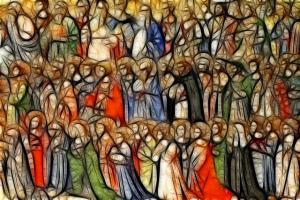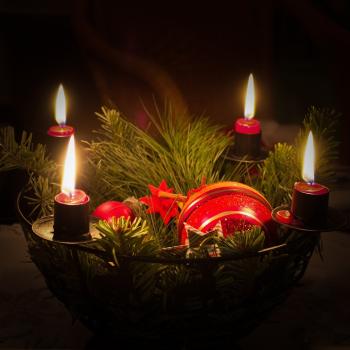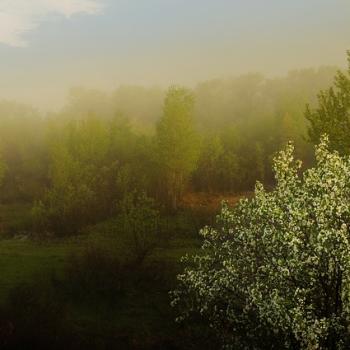
I remembered this weekend that most everybody likes to know facts about the lives of saints.
I’m thinking about saints all the time lately, and I keep mentioning what I’ve learned when I’m on social media.
I was researching Saint Ignatius of Loyola for my Lives of the Saints project, and I joked on twitter that the cannon ball which “canonized his leg,” leading to his painful surgeries and eventual religious conversion, was the first time I’d heard “canonized” referring to an actual cannon instead of a person being declared a saint. Ignatius is the only person I know of who’s been canonized twice. People thought that was funny. I tweeted about learning about his struggles with gallstones and kidney stones, and people reacted to that as well– speculating about how it might have come to pass, what immoderate fasting can do to your health.
I tweeted my now infamous list of different types of saint and everyone speculated about their favorite. Even conservatives I usually squabble with thought it was fun. I got exactly one troll and even he didn’t say anything more offensive than “cringe.” I never get that little pushback on a post. I tweeted my wedding picture on my anniversary and people groused at me for having pronouns in my bio. But talking about the lives of saints just made everybody laugh and chime in with their favorites. Everyone had a favorite saint.
Even people who aren’t Christian like saints. Holly and Reese have paintings of themselves as Joan of Arc and Saint Gertrude in their house. Holly has a big colorful children’s book with Saint Francis’s Canticle of the Sun in it and her face lit up when I mentioned I like talking to Saint Teresa of Avila. Saints are fun.
Saints are also a problem, because most everybody can think of a saint they can’t stand.
A lot of people can’t stand Saint Pio, and I am one of them. If that man got to Heaven, it was in spite of his crass misogyny and I hope the Virgin Mary gave him a miserable purgatory first. We all know I’m horrified by the misdeeds of John Paul the Second. I mentioned in passing in that post about saints that there are some saints who were terrible bigots, to their great shame. I can’t defend that. There were still other saints who, while sincerely wishing to do good, did things that were unwise or just silly, and their hagiographers praised these well meaning actions as part of their virtue, and it frightens me to no end that someone’s going to try to imitate them and get hurt.
Some of the worst blows to my faith have come when I’ve discovered a person that I honestly thought was exemplary was actually a bad person. I mean this in the case of actual canonized saints, like my aforementioned struggles with John Paul the Second and with finding out how the otherwise beautiful Saint Maximilian Kolbe felt about Jewish people. But I also mean the Catholics I looked up to and privately canonized in my mind who turned out to be responsible for so much evil, like Father Mike Scanlan.
At the same time, some of the only joy I’ve felt during the struggles I’ve had in my faith lately is when I’ve been studying about the saints.
Some of the only good conversations I’ve had about Catholicism lately have been talking with people about saints. I don’t have fun engaging conversations about other parts of my faith very often. I don’t have a great time arguing with others about transubstantiation or the Filioque or the Four Dogmas of the Virgin Mary. I have fun chatting with others about saints. Saints bring us together and make us see each other as human. People who ought to be saints and fail shake me to my core.
I think that what we can take away from this, is that the Church is people. It’s more than just people, but one of the things the Church is, is people. It’s supposed to be that way. Most of us don’t encounter God by never seeing anyone else and just meditating all day. Some of us do, but that’s not a very common vocation. Most of us encounter God in our interaction with the people who radiate God, or when we’ve been able to offer the presence of God to somebody else by being kind to them. And that’s not a fluke; that’s the way God intended it to be. God the Father created us in God’s image, and God the Son brought us together into one Body to be His face for the whole world. That’s part of what it means to be a Communion of Saints. We’re not just ourselves, we’re one together in Christ, radiating Christ to each other. The Communion of Saints up in Heaven are what we’ll look like when God is done healing us here on Earth, but we’re all parts of the same Body, and we keep each other’s faith alive just like a body is supposed to have all its organs working in harmony to keep itself alive.
Of course that means the most impossible, painful blow to faith is when someone in whom we expected to find God turns out to be a terrible person. It’s as if you’ve been hurt by Christ– or as if Christ didn’t exist at all.
But on the other hand, maybe it means we can heal each other by showing Christ to each other all the more.
That’s what I’ve been thinking of when I should have been writing, so I decided to jot it down and tell you.
Mary Pezzulo is the author of Meditations on the Way of the Cross, The Sorrows and Joys of Mary, and Stumbling into Grace: How We Meet God in Tiny Works of Mercy.













